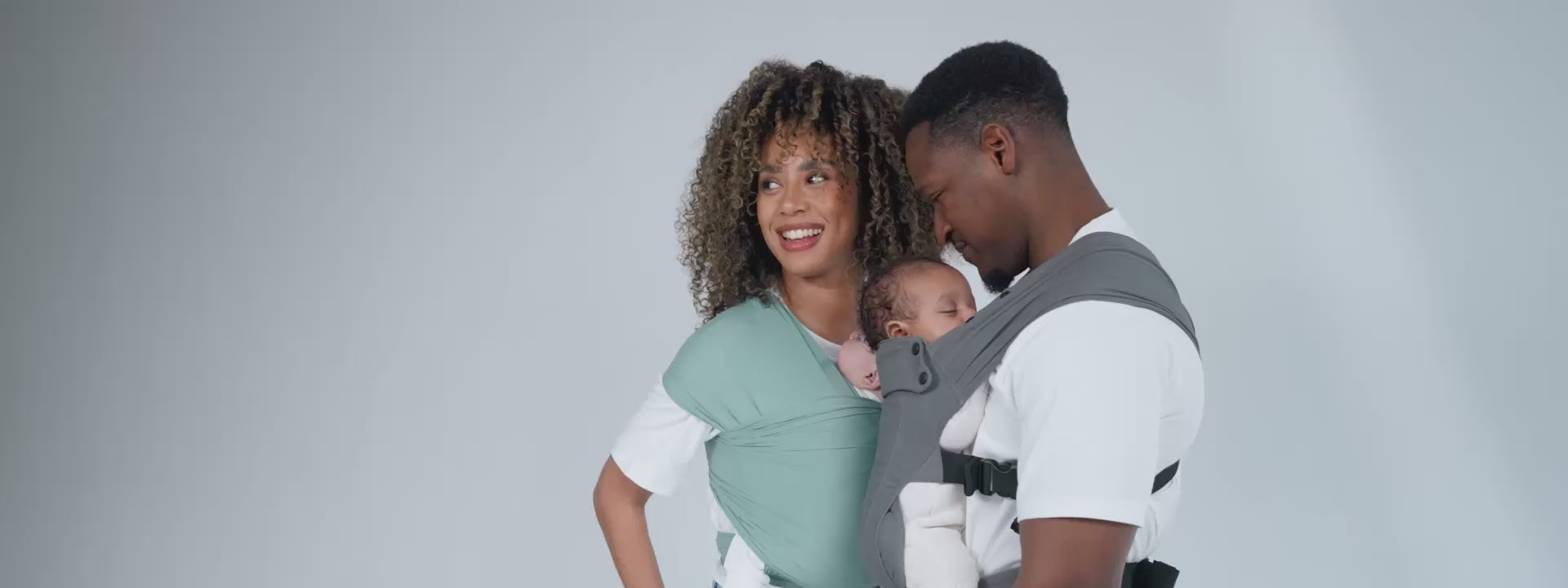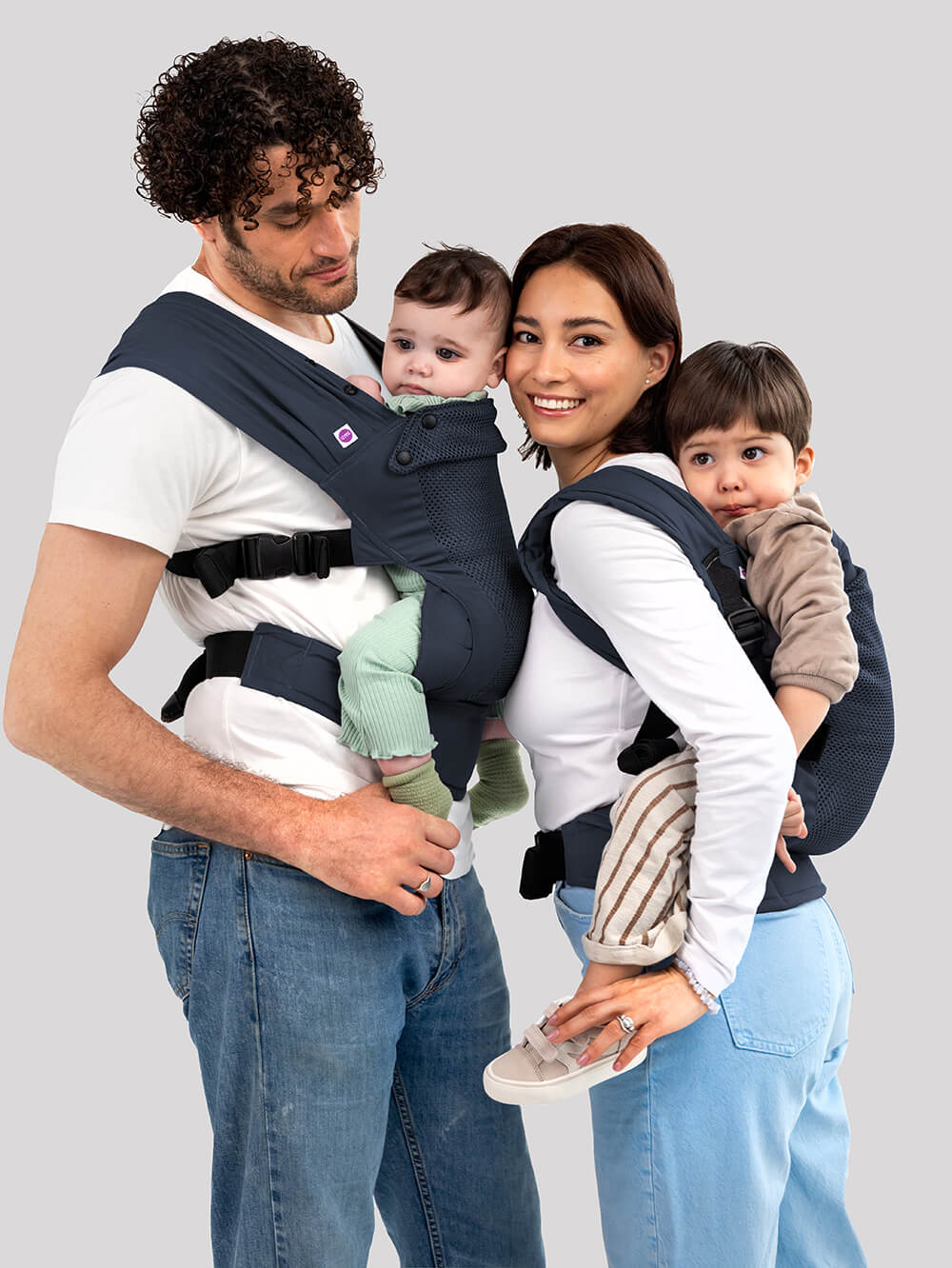When your baby reaches around 3-6 months old, they often start craving a view of the big wide world. At this stage, their neck and upper back muscles are getting stronger, allowing them to support and turn their head. Their eyesight also improves, opening up a whole new world of curiosity.
One way to satisfy their curiosity is by using a forward-facing baby carrier like the Izmi Baby Carrier, so your baby can explore the world. But (like with everything baby-related!) there's some debate about when and if it's the right choice to face forwards.
When is the right time for forward-facing?
To keep your baby safe while facing outwards, their neck needs to be strong enough to support their head against your movements. This usually happens around 4-5 months of age, but it varies from one baby to another. They should also be tall enough for their chin to peek above the top of the carrier.
It's a temporary phase
Everything is a phase! And forward-facing is one more phase in your baby's carrying journey. Typically, it starts around 4-5 months and lasts until about 9-10 months. After this, your baby can easily turn to face you or explore from a back or hip carrying position.
Is your 5, 6 or 7 month old feeling heavy? Are you getting a sore back of shoulders when you carry them facing outwards? Then turn them back round to face you; popping one or both of their arms over the top of the carrier so they can still wiggle around and not feel restricted.

Steer clear of the super cheap carriers
While you might be tempted by cheap carriers on Amazon or at stores like Aldi and Lidl, it pays to be cautious. Many of these carriers lack proper ergonomic support, both for parent-facing and forward-facing positions. They're also often outgrown VERY quickly, despite claims that they're suitable for toddlers - so really not that great value at all.
Comfort matters
Using a well-fitted carrier, forward-facing can definitely be comfortable. However, you might feel more strain on your back and shoulders due to the forward-pulling weight. Generally, parent-facing positions tend to be cosier for both you and your baby.
Are baby's hips safe?
To ensure good hip support, make sure your carrier holds your baby in a seated position with their knees at the same level as, or high than, their hips. Check that the carrier's fabric fully supports your baby's bottom and thighs from one knee to the other.
If you do all this and your child's legs are still dangling straight downwards, you should move them back to face you with their lower body fully supported and hugged around your waist.
Safety when forward-facing in a carrier
Research shows that short periods of forward-facing carrying are generally safe. Just make sure your baby can support their head and always turn them inward when they need to sleep to protect their airways. If there is any concern that your baby may have hip dysplasia or other hip development issues, then you may wish to be more cautious as it’s harder to get optimum hip support when forward facing.
Is there anything I should watch out for?
Long periods in an outwards facing position can be overwhelming or overstimulating for some babies as they cannot see their parent or turn away from strange situations if they are not comfortable.
Change to an inwards-facing position if your baby needs to sleep, or seems at all unsettled or uncomfortable. In an Izmi Baby Carrier, we recommend this position for around 15-30 minutes at a time, ideally.
What are alternatives to forward-facing in a baby carrier?
Once your baby can roll over, they're typically strong enough to have their arms out over the top of a baby carrier. This gives them more freedom to look around while still keeping an eye on you. You can also try back or hip carrying positions, which can be great options as your baby grows.
The Izmi Baby Carrier and Izmi Breeze Baby Carrier both support forward-facing carrying.
Izmi Baby Wrap and Izmi Adventure Toddler Carrier are not designed for forward-facing carrying. Instead, try placing one or two arms over the top of the wrap (from 4months+) or toddler carrier so your little one can look and move around.



